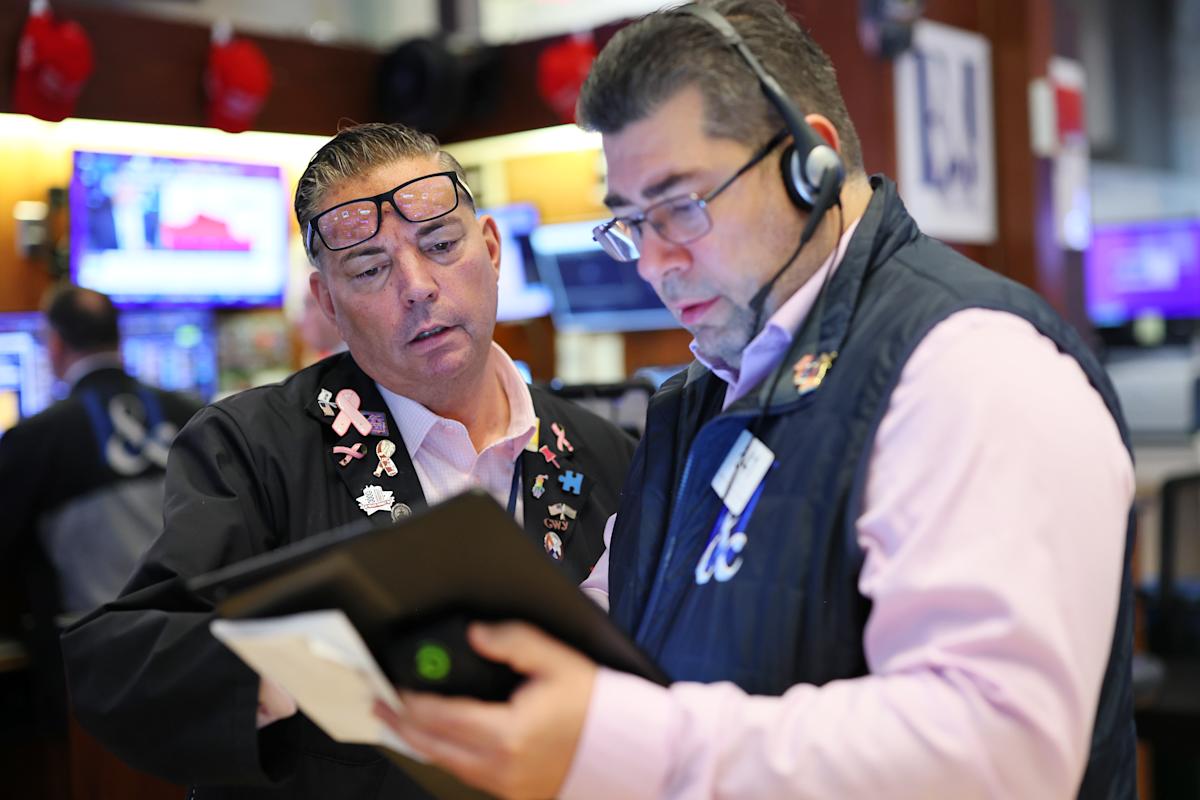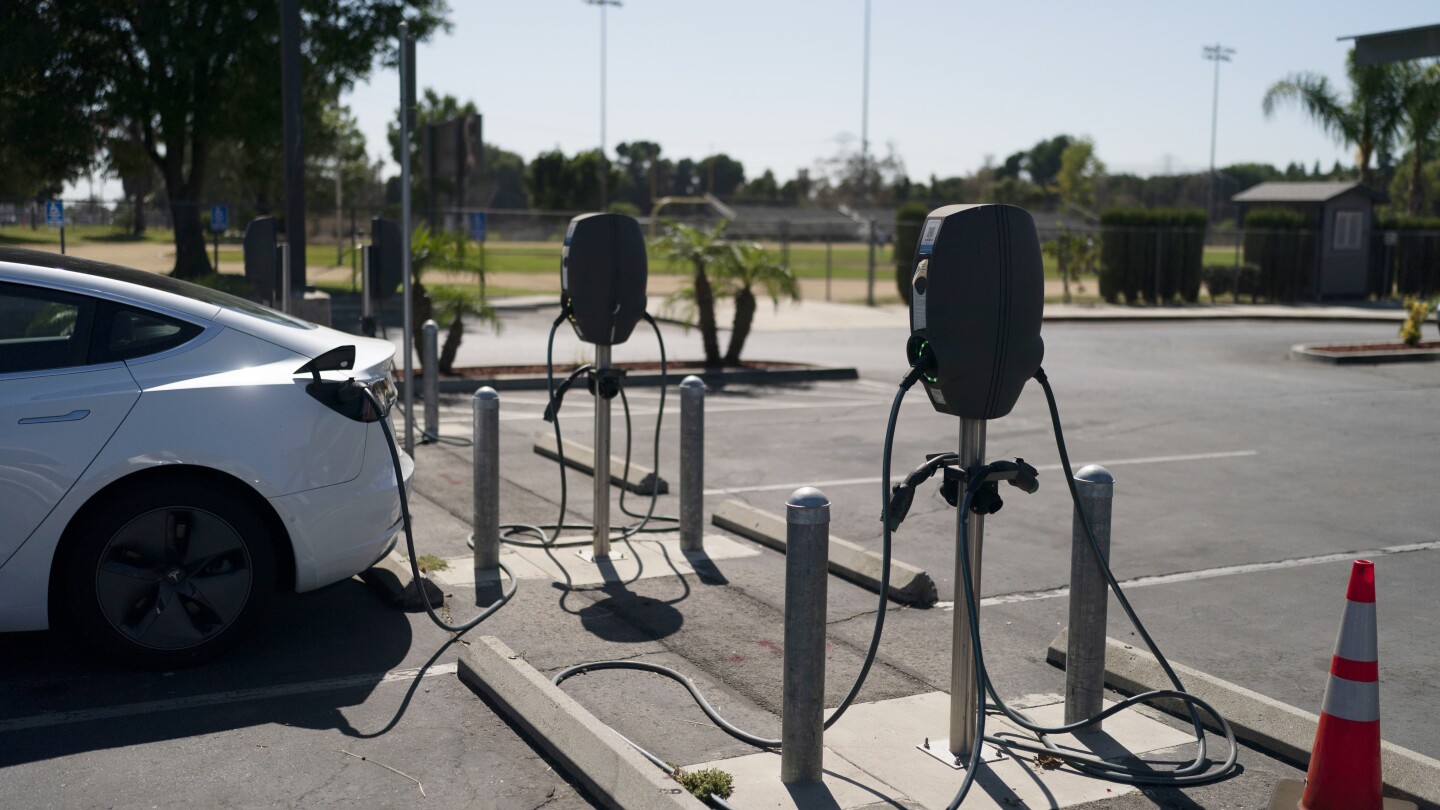Anek S | 500px Plus | Getty Images
U.S. futures were little changed given investors’ concerns that a global trade would adversely impact economic growth in the country.
Overnight stateside, stocks fell sharply after Powell warned that the trade tensions could impact the Fed’s inflation and employment goals. The sell-off in Wall Street was also triggered by a 6.9% plunge in the artificial intelligence darling Nvidia‘s shares.
The Dow Jones Industrial Average lost 699.57 points, or 1.73%, closing at 39,669.39. The S&P 500 dropped 2.24% to end at 5,275.70, led down by the information technology sector. The Nasdaq Composite pulled back 3.07% to close at 16,307.16. The tech-heavy index ended the day about 19% off its closing high, sliding closer to bear market territory.
— CNBC’s Pia Singh, Alex Harring and Lisa Kailan Han contributed to this report.
Singapore’s benchmark STI rises over 1.5% to 2-week high
STI movement
— Amala Balakrishner
Taiwan shares fall for second straight session
iShares MSCI Taiwan ETF
— Amala Balakrishner
Asian chip-related stocks trade mixed on Nvidia’s plunge
Semiconductor-related stocks in Asia were mixed Thursday, after a 6.9% decline in Nvidia shares spurred a tech sell-off in Wall Street.
Shares of Taiwanese chipmakers who supply to Nvidia came under pressure. Taiwan Semiconductor Manufacturing Corp fell 0.58% while Hon Hai Precision Industry tumbled 1.47%.
Meanwhile, shares of semiconductor-related companies in Japan and South Korea rose.
Semiconductor testing equipment supplier Advantest‘s shares surged 3.02% as at 10.41 a.m. Singapore time, while technology conglomerate SoftBank – which owns a stake in chip designer Arm – moved up 0.95%.
Shares of South Korean SK Hynix and Samsung Electronics increased 0.11% and 0.46% respectively.
— Amala Balakrishner
Hong Kong shares up over 1%, reversing course from declines in previous session
Hang Seng Tech ETF
Meanwhile, the Hang Seng Index was last seen up 1.01%, reversing course from declines in its Wednesday session.
— Amala Balakrishner
Australia’s job additions in March falls short of estimates
Australia added 32,200 jobs in March, falling short of Reuters poll estimates of 40,000 additions, data released by the Australian Bureau of Statistics showed Thursday.
The country’s seasonally adjusted jobless rate climbed 4.1% from 4% in the previous month, but lower than the 4.2% forecast by economists polled by Reuters.
— Amala Balakrishner
Korean Won depreciates against dollar after central bank holds interest rates; Other Asian currencies fluctuate
The Korean won depreciated sharply Thursday, following the central bank’s decision to stand pat on interest rates.
As at 8.25 a.m. Singapore time, the Korean won had weakened by 0.47% against the U.S. dollar to 1,420.40.
The move also comes alongside a rise in the U.S. dollar. The dollar index was last seen up 0.2% to 99.575.
Other Asian currencies fluctuated sharply on Thursday.
The Japanese yen slumped 0.59% against the dollar to 142.66 as trade talks between the U.S. and Japan progress.
Meanwhile, the Thai baht weakened 0.12% against the dollar to 33.11 while the Singapore dollar depreciated 0.22% against the greenback to 1.3135.
The Australian dollar, meanwhile, strengthened 0.3% against the dollar to 0.6351.
— Amala Balakrishner
Bank of Korea holds rates as country grapples with U.S. tariffs, prepares for snap election
South Korea’s central bank held its policy rate at 2.75% Thursday, as the country grapples with U.S. tariffs and prepares for a snap presidential election.
This was in line with a Reuters poll of economists that forecast the bank to keep rates unchanged.
On Tuesday, South Korea’s Finance Minister Choi Sang-mok reportedly told parliament that the country would seek to delay the implementation of tariffs as long as possible in negotiations with the U.S.
Read the full story, here.
— Lim Hui Jie
Singapore non-oil domestic exports increase 5.4% year-on-year in March, missing estimates
Singapore’s non-oil domestic exports increased 5.4% in March compared to the same period last year, missing the 14.1% growth forecast by economists polled by Reuters. The figure also falls short of the 7.6% rise seen in the previous month, data released by EnterpriseSG Thursday showed.
On a month-on-month basis, Singapore’s NODX tumbled 7.6%, a sharper decline than the 2.6% increase seen in February. The reading is also weaker than the 0.5% fall forecast in Reuters’ poll.
Singapore’s Prime Minister Lawrence Wong, on Wednesday, announced the set up of a new Singapore Economic Resilience Taskforce to help local businesses and employees navigate uncertainties brought on by U.S. President Donald Trump’s tariffs.
— Amala Balakrishner
Japan exports growth misses expectations, rising by a modest 3.9% in March as tariffs bite
Japan on Thursday reported a 3.9% rise in March exports compared to a year earlier, a month after exports saw their largest rise since May 2024.
The growth missed expectations of a 4.5% rise from economists polled by Reuters, and was lower than the 11.4% jump in February.
Japan’s trade deficit narrowed to 544.1 billion yen, but was wider than the Reuters poll expectations of 485.3 billion yen. The deficit in February stood at 590.5 billion yen.
Read the full story, here.
– Lim Hui Jie
Fear gauge spikes
After a recent pullback, Wall Street’s “fear gauge” is once again moving higher.
The CBOE Volatility Index, or VIX, added more than 4 points, last trading above 34. That marks a turn after three straight sessions of declines.
The index spiked above 60 earlier this month as Trump’s tariff policy rattled financial markets.
The VIX, 5-day
— Alex Harring


















